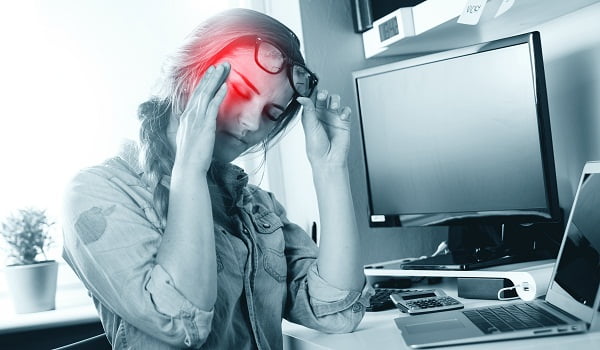
Can ocular migraine go on its own?
Generally, the symptoms of ocular migraine (or auras without headache or eye migraine) go away on their own after some time (mostly in about 30 minutes). Therefore, in most cases, you do not need treatment for them. However, there are certain steps you should follow if you note any signs of the condition.
Treating Ocular Migraine (Retinal Migraine)
The treatment of ocular migraine includes comfort measures, medication and avoiding the triggers of eye migraine.
If you experience symptoms of an ocular migraine, the first thing you should do is stop the work you are doing. It is suggested that you give rest to your eyes until your vision goes back to normal. If you have a headache, you can take a pain reliever as prescribed by your doctor.
These are the steps one should consider:
Step 1
Close your eyes until the visual disturbances go away. If possible, cover your eyes with a cloth to block all light and switch off all the lights. If possible, lie down in a dark room.
If you are driving, stop the car park it aside on the road. Avoid any lights, noise or stress as these can trigger the symptoms.
Step 2
Take over-the-counter medications if you experience discomfort. However, ins most cases, you may not need them. Few examples of these medicines are:
- aspirin
- ibuprofen
Step 3
Do not let your body get dehydrated. Take plenty of water.
Step 4
Contact your doctor and get the prescription medicines as early as possible. Several fast-acting prescription drugs may help in shortening visual migraines, such as isoproterenol, naproxen, meclofenamate, nitroglycerin.
It is not recommended to take medications that are prescribed for other types of migraines.
Your doctor may also recommend preventive medicines such as:
- calcium channel blockers
- anti-seizure medications such as gabapentin, topiramate, valproic acid
Step 5
If you get vision loss in one eye only, it might be due to some other serious condition that isn’t ocular migraine (eye migraine). This could be for example due to detached retina or any other serious complications. Sometimes, the problem may cause permanent loss of vision. Therefore, you should immediately contact your doctor for a proper diagnosis and treatment if you suspect something serious.
Tips for ocular migraine
- Keep certain things with you if you frequently experience symptoms and signs of ovular migraine. These are such as cold compress, over-the-counter medicines, prescription medicines.
- Other important thing you need to consider is the avoidance of migraine triggers.
What are the triggers of ocular migraine (visual migraine, retinal migraine, eye migraine)?
- chocolate
- cheese
- dairy
- baked goods
- some fruits
- some types of nuts
- onions
- peanut butter
- processed or marinated foods
- Smoke
- Certain odors
- Bright lights
- Stress
- Lack of sleep
- Poor eating habits
- Allergies






